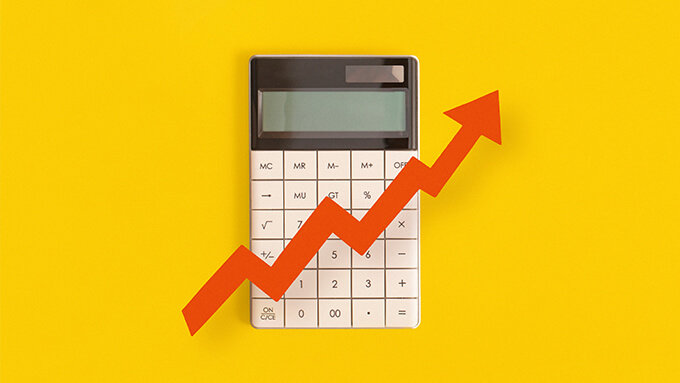Taxation of Social Media Content Producers Earnings in Light of Recent Changes
Introduction
Social media has emerged with the development of the digital world and internet technology and has greatly influenced the world today. One of the main categories of actors in social media is social media content producers. These people earn through social networks in various ways such as advertising revenues, sponsorship, sales revenues, and paid subscription revenues. How these earnings will be taxed has been a matter of interest for a while both in the tax world and in the eyes of those who earn it. Through Law No. 7338 on Amendments to Tax Procedure Law No. 193 and Certain Laws published in the Official Gazette on 26.10.2021 (“Law No. 7338”), the issue of how to tax these earnings derived through social media became clear, and, a practical taxation system has been introduced.
Accordingly, the repetitive Article 20/B was introduced to Income Tax Law No. 193 (“ITL”). Through this legislation, starting from 1 January 2022, the earnings of social media content producers derived from such activities as sharing text, images, audio, and video over social network providers on the internet will be exempted from income tax. In case the exemption conditions are met, these earnings will be subject to 15% income tax withholding through the banks. In addition, on 23.12.2021, the Draft Communiqué on Income Tax Serial No. 318 (“Draft Communiqué”) was published by the Revenue Administration, which has not yet entered into force as of the date of this article; and, regulates the procedures and principles regarding the repetitive Article 20/B of ITL. In the Draft Communiqué, it is also stated that taxpayers who want to benefit from the exemption must obtain an exemption certificate from the relevant tax offices. To understand the importance and current problems of this new regulation, it is also useful to have a good understanding of the process before the introduction of this regulation.
How Were Social Media Content Creators Taxed Before Law No. 7338?
Before Law No. 7338, there were discussions about whether the type of income generated by social media content producers constitutes commercial or self-employment earnings. In the rulings[1] of the Revenue Administration, it was stated that these earnings should be considered commercial income. Thus, in a recent ruling[2] regarding the earnings of the person who works as a teacher and who also earns income by uploading content on her YouTube channel, the Revenue Administration held that producing content on platforms such as YouTube constitutes the presumption of “the continuity intent” and “the existence of an organization”, which are the components sought in the determination of commercial income.
However, in practice, it was not realistic to be evaluated within the scope of commercial income, for people who earn a small amount of income and to be subjected to obligations such as keeping a book regarding commercial activity, issuing declarations, or issuing documents and invoices.[3] In addition, the opinion of the Revenue Administration was criticized by those who thought that the earnings derived through social media should be considered as self-employment income, rather than commercial earnings, since the activity does not require capital intensity but is based more on personal work, and scientific and professional knowledge.[4]
In addition, retrospective assessments were made in the direction of the Revenue Administration, before taxpayers. However, a significant portion of the lawsuits brought before tax courts against these assessments was concluded in favor of taxpayers.[5]
How Will the Earnings of Social Media Content Producers from These Activities be Taxed Under Law No. 7338?
Income Tax Exemption
According to the repetitive Article 20/B of ITL, introduced with Law No. 7338, the earnings of social media content producers derived from such activities as text, images, audio, and video shared over social network providers on the internet will be exempted from the income tax, starting from 1 January 2022. The exemption will still be applicable even if the provider derives incomes or revenues from other activities.
To benefit from the income tax exemption introduced by Law No. 7338, two conditions must be met:
- Taxpayers shall open a dedicated account in a bank established in Turkey and all revenue related to these activities should be collected exclusively through this account, and
- The total earnings of the taxpayer (the amount found after deducting expenses from revenue) within the scope of the regulation shall not exceed the amount in the fourth bracket of the income tax table included in Article 103 of the ITL. (It is TL 650.000 for 2021 and has not been determined for 2022 yet.)
- Under the new law, the following taxpayers cannot benefit from this exemption and their earnings are taxed according to the commercial income provisions:
- Taxpayers whose earnings exceed the determined amount in the fourth bracket of the income tax table,
- Taxpayers who do not collect all their revenue related to these activities through a dedicated account.
- Assuming that these exemption conditions are not met, the tax accrued incompletely will be collected together with the default interest and the tax loss penalty.
Withholding Liability of Banks
According to the repetitive Article 20/B of the ITL, banks have the liability to withhold tax of 15% as of the date of receipt, on the revenue received from the accounts opened by content producers. In this context, banks will be liable to declare the withholding tax with a withholding tax return according to Article 98 of the ITL, and to deposit these taxes with the relevant tax office under Article 119 of the ITL.
In addition, the president has been authorized to re-determine the withholding tax rate by reducing the withholding rate to zero and increasing it up to onefold.
All of the earnings of the taxpayers who cannot benefit from the exemption are taxed according to commercial income provisions, and these taxpayers pay their taxes according to a progressive tariff by submitting an annual income tax return. Taxes withheld by banks are deducted from the income tax to be calculated on these income tax returns. These taxpayers also have other tax liabilities such as bookkeeping and document issuance liabilities.[6]
Under Article 94 of the ITL, neither those who benefit from the exemption nor those who do not are liable to withhold tax on payments such as wages and rents.
Application for Exemption from Value Added Tax (“VAT”)
Through Law No. 7338, an exemption is stipulated on Law No. 3065 on VAT (“VAT Law”) regarding social media incomes. Accordingly, the phrase "delivery and services subject to taxed earnings within the scope of repetitive Article 20/B of the same Law" has been added to Article 17/4/a of VAT Law. Through this regulation, deliveries and services subject to earnings which are taxed through withholding and are exempt from income tax, are also included in the VAT exemption.
Issues with the Recent Regulation
- Although the recent regulation on the taxation of social media content producers’ earnings partially removes the uncertainty that existed before Law No. 7338 was enacted and it provides a simple taxation procedure especially for small earnings, the question marks regarding the nature of the income in question have not been resolved. Even though there is no clear regulation regarding the nature of the income in the text of Law No. 7338, it is stated that these activities are in the nature of commercial activities in the Justification[7] of Law No. 7338. It can be understood from the justification that the Legislature accepts the understanding in the rulings given by the Revenue Administration before Law No. 7338. However, it is argued that it is legally more accurate to determine the nature of these earnings as self-employment earnings.[8]
- While the exemption is applied up to the amount in the fourth income bracket of the income tax table included in Article 103 of the ITL, the fact that the exemption will not apply in case the limit is exceeded – even by very small amounts – imposes an excessive tax liability on these taxpayers. It can be argued that this situation is contrary to the principle of taxation based on the ability to pay.[9] In addition, it is stated that the fairer thing is to exclude the income amount equal to the exemption limit, for all taxpayers in the scope of this regulation.[10]
- Deliveries subject to income exempted from income tax with Law No. 7338 are exempt from VAT. If it is thought that VAT will be calculated after the part exceeding the exemption limit, it should be clarified what kind of VAT application should be made if the last delivery at the said limit is indivisible.[11]
- The expression "banks established in Turkey" in Law No. 7338 should be understood as the banks subject to Banking Law No. 5411. However, it is stated that opening an account “in any bank operating in Turkey” should be sufficient to benefit from the exemption.[12]
Conclusion
Through the amendments made with Law No. 7338, social media earnings have been exempted from income tax within certain limits and conditions. However, these earnings are not completely exempted from taxation and are subject to taxation by means of withholding. Thus, the taxes paid by the banks with a 15% withholding on the revenue of social media content producers whose total earnings within a calendar year do not exceed the determined limit will be the final taxes for them. They will also not submit an annual income tax return for these earnings or, if they do submit a return for other incomes, they will not include these earnings in their returns. In this context, the new regulation ensures that these earnings are taxed more easily, the risk of obtaining unregistered income is prevented, and certainty is ensured in the eyes of taxpayers. Since the relevant regulation will be applied as of 01.01.2022, it is important that affected taxpayers and banks are informed about this topic.
- The ruling of Denizli Tax Office Directorate No. 51421814-120[37-2019/5]-E.5817 and dated 21.01.2020; The ruling of Kayseri Tax Office Directorate No. 50426076-120[37-2019/20-727]-E.129069 and dated 13.11.2019; The ruling of Hakkari Governorate Revenue Directorate No. 88945244-010-E.5342 and dated 11.12.2020; the ruling of İstanbul Tax Office Directorate No. 62030549-120[37-2018/1297]-444488 and dated 07.06.2021; The ruling of İstanbul Tax Office Directorate No. 62030549-120[37-2019/272]-444493 and dated 07.06.2021.
- The ruling of Osmaniye Governorate Revenue Directorate No. 54451858-045-22752 and dated 01.09.2021.
- Sağlam, Erdoğan: “Sosyal medya içerik üreticiliği ile mobil cihazlar içinuygulama geliştiriciliği kazançları gelir vergisindenistisna ediliyor”, https://t24.com.tr/yazarlar/erdogan-saglam/sosyal-icerik-ureticiligi-ile-mobil-cihazlar-icin-uygulama-gelistiriciligi-kazanclari-gelir-vergisinden-istisna-ediliyor,32688 (Access date: 12.12.2021); Akarca, Akif/ Şafak, Mehmet: “Sosyal Medyadan Sağlanan Gelirlerin Vergilenmesinde Kolaylık Sağlayacak Yeni Düzenleme”, Dünya Gazetesi, https://www.dunya.com/kose-yazisi/sosyal-medyadan-saglanan-gelirlerin-vergilenmesinde-kolaylik-saglayacak-yeni-duzenleme/635835 (Access date: 12.12.2021)
- Ergin, Numan Emre: “Sosyal medya fenomenlerinin ve Youtuberların vergilendirilmesi”, Dünya Gazetesi, https://www.dunya.com/kose-yazisi/sosyal-medya-fenomenlerinin-ve-youtuberlarin-vergilendirilmesi/610917 (Access date: 12.12.2021)
- Ergin, Numan Emre: “Sosyal Medya Kazançlarının Vergilendirilmesinde Yeni Dönem ve Sorunlar”, Dünya Gazetesi, https://www.dunya.com/kose-yazisi/sosyal-medya-kazanclarinin-vergilendirilmesinde-yeni-donem-ve-sorunlar/637561 (Access date: 12.12.2021).
- Sağlam.
- Proposal and justification for the Amendment of the Tax Procedure Law No. 193 and Certain Laws, (https://www2.tbmm.gov.tr/d27/2/2-3854.pdf (Access date: 12.12.2021).
- Ergin.
- Ergin.
- Sağlam.
- Ergin.
- Başak, Levent: “7338 Sayılı Kanun Kapsamında Sosyal Medya Fenomenlerinin Elde Ettikleri Kazançların Vergilendirilmesi Esasları”, Yaklaşım Dergisi, No: 348, December 2021.
All rights of this article are reserved. This article may not be used, reproduced, copied, published, distributed, or otherwise disseminated without quotation or Erdem & Erdem Law Firm's written consent. Any content created without citing the resource or Erdem & Erdem Law Firm’s written consent is regularly tracked, and legal action will be taken in case of violation.



















